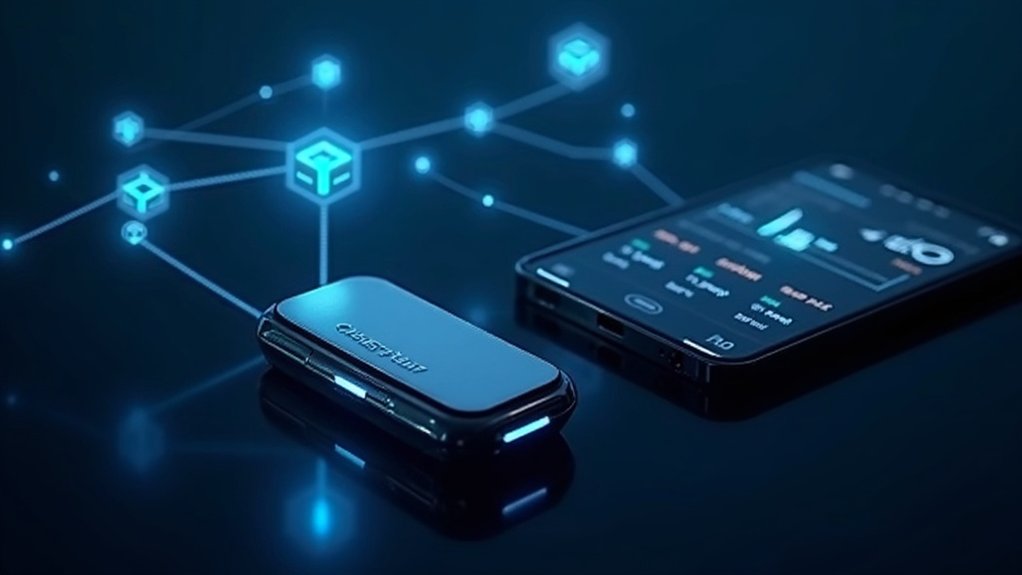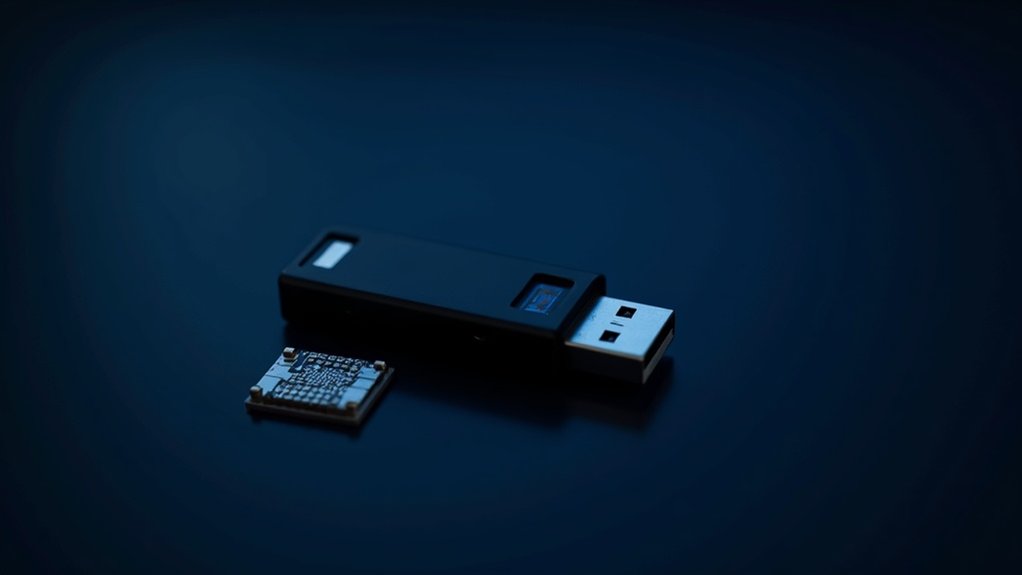A DeFi wallet is a digital tool that stores cryptocurrency without banks or middlemen. Users maintain complete control through private keys—lose these, lose everything. Pretty straightforward. These wallets connect to blockchain applications for trading, lending, and other financial activities. No ID required. Modern versions support multiple networks and have user-friendly interfaces. Hardware options offer better security than software versions. The freedom comes with serious responsibility—nobody’s there to reset your password.
A DeFi wallet isn’t your grandpa’s dusty old billfold. It’s a digital powerhouse that lets you manage cryptocurrencies without anyone’s permission or oversight. No banks. No middlemen. Just you and your crypto, living in digital harmony on the blockchain.
These wallets operate on a simple principle: cryptographic keys. You’ve got a public key that others use to send you funds—like your digital address. Then there’s the private key. Guard this with your life. Seriously. Anyone who gets it can empty your wallet faster than free beer disappears at a college party.
When you want to send crypto, you sign the transaction with your private key. The network verifies it’s legit, then miners or validators add it to the blockchain. Permanent. Immutable. Done.
Setting up a wallet starts with a seed phrase—random words that generate your private key. Write these down. Not on your phone. Not in an email. On actual paper. Old school, but necessary.
DeFi wallets come in various flavors. Hardware wallets are physical devices—the Fort Knox of crypto storage. Software wallets live on your computer or phone—convenient but more vulnerable. Web wallets like MetaMask connect directly to dApps through your browser. Some people even use paper wallets. Yes, literal paper in 2023. The blockchain’s rapid growth means wallets must now handle an ever-expanding 653 gigabyte ledger of transaction history.
The main selling point? Self-custody. Your keys, your crypto. Nobody can freeze your assets or tell you what to do with them. Freedom has a price, though. Lose your keys? Your crypto’s gone. Forever.
Self-custody is crypto’s double-edged sword. Absolute freedom meets absolute responsibility—one wrong move and your digital fortune vanishes into the blockchain void.
These wallets do more than store money. They’re portals to the entire DeFi ecosystem. Lending. Borrowing. Swapping tokens. Staking for yield. All without filling out a single form or showing ID. The enhanced privacy means your funds remain untrackable and private without requiring identity verification. These smart contracts automatically execute transactions based on predetermined conditions, eliminating the need for intermediaries in your financial activities.
Most wallets now support multiple blockchains—Ethereum, Polygon, whatever. The interfaces are getting better too. No computer science degree required anymore.
Bottom line: DeFi wallets put you in control. Complete ownership. Complete responsibility. Not for the faint-hearted, but that’s the point.
Frequently Asked Questions
Are Defi Wallets Insured Against Hacks or Theft?
No, DeFi wallets typically aren’t insured against hacks or theft.
That’s the cold, hard truth. Users shoulder the risk when they control their private keys. Smart contract insurance exists for some protocols, but it doesn’t cover your stolen wallet.
Traditional insurers? They’re staying away from this mess. No central authority means no safety net.
Lose your keys or fall for a phishing scam? You’re on your own. Welcome to decentralization.
Can I Recover My Funds if I Lose My Seed Phrase?
No, you can’t recover funds if you lose your seed phrase. Period.
That’s the harsh reality of DeFi wallets. The seed phrase is literally the only key to the kingdom. No phrase, no funds.
Unlike traditional banks, there’s no customer service to bail you out. Billions in crypto sit permanently locked away because people lost their phrases.
Professional recovery services? Mostly scams. The blockchain doesn’t care about your forgetfulness.
How Do Defi Wallet Fees Compare to Centralized Exchanges?
DeFi wallet fees can actually be pricier than centralized exchanges. On-chain swaps in wallets hit nearly 1% per transaction, plus unpredictable gas fees during network congestion. Brutal.
CEXs typically charge lower trading fees, especially for high-volume traders. They do, however, slap on withdrawal fees—something DeFi wallets don’t have.
Some DEXs offer rock-bottom fees (as low as 0.02%), crushing both options.
But beware hidden costs from slippage in DeFi—they’ll get you every time.
Can I Use Defi Wallets in Countries With Crypto Restrictions?
DeFi wallets can technically be used anywhere with internet access, even in countries with crypto restrictions. That’s the beauty—and danger—of decentralized finance.
No central authority can directly stop someone from using these non-custodial wallets.
But let’s be real: users face serious risks. Legal consequences vary by country, from fines to imprisonment.
Government monitoring, blocked websites, and app store restrictions make access challenging. Many bypass these using VPNs, but that’s a whole other legal risk.
Do Defi Wallets Require KYC Verification?
DeFi wallets typically don’t require KYC verification. That’s their whole appeal.
Unlike centralized exchanges where you’re handing over your ID and firstborn child, DeFi operates on decentralized protocols without intermediaries to enforce identity checks. No central authority means no one to demand your personal info.
Some jurisdictions try regulating access points, but the wallets themselves? Nope. They’re designed for pseudonymity and privacy. Regulators hate this one simple trick.









